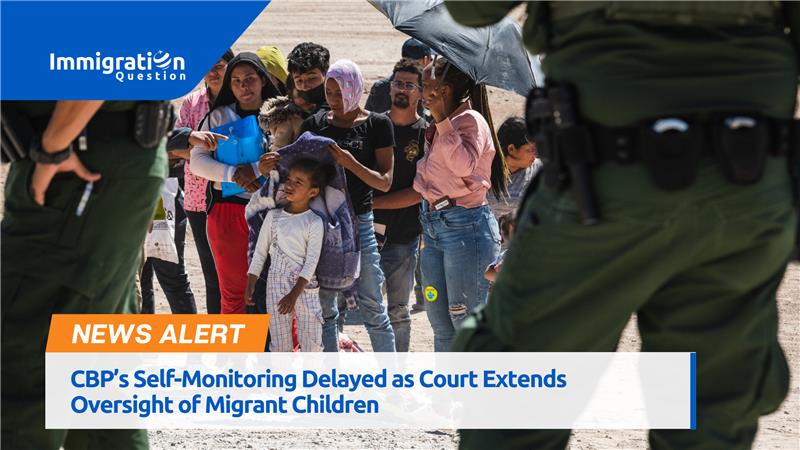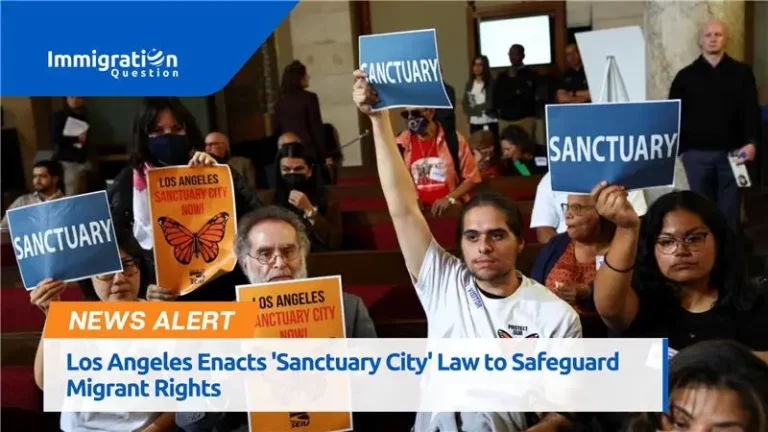A federal judge has extended a court agreement ensuring safe and sanitary conditions for migrant children held in U.S. Customs and Border Protection (CBP) custody. The decision which was made just a day after CBP was set to begin self-monitoring, lengthens the oversight period by an additional 18 months.
The agreement, which was initially set to expire on Wednesday, was extended by District Judge Dolly M. Gee in California. The judge determined that CBP had not yet demonstrated the capacity to fully uphold its responsibilities under both the 2022 Settlement and the Flores Settlement Agreement without continued judicial oversight and monitoring.
The Role of Court-Appointed Monitoring
Under the granted extension, a court-appointed Juvenile Care Monitor (JCM) will continually assess and report on the conditions in CBP facilities, especially in the Rio Grande Valley and El Paso, Texas. The JCM is also responsible for evaluating whether CBP facilities maintain appropriate living conditions for migrant children, ensuring compliance with the legal standards established by the court.
This oversight mechanism was established due to long-standing concerns over the treatment of minors in federal custody. Reports from the first Trump administration revealed cases of children being separated from their families for extended periods and housed in poor conditions. One of the most tragic incidents occurred in 2019 when a Guatemalan teenager died in custody amid a flu outbreak and inadequate medical care in a Texas facility.
Background on the Court Agreement
The current two-and-a-half-year monitoring agreement went into effect in July 2022. It offered an impartial assessment procedure to monitor CBP’s adherence to guidelines for migrant children’s care.
The monitor noted improvements in CBP’s procedures in its most recent report, which was submitted in December, but it also pointed out persistent problems. The ongoing practice of separating some parents from their children was one of the main causes of concern. Furthermore, disparities in CBP’s reported data implied that the organization may have underreported the number of minors held past the approved 72-hour limit.
CBP’s Push for Self-Monitoring
CBP was originally scheduled to transition to self-monitoring on Wednesday. The agency asserted in December that it was prepared for this responsibility, citing updated guidelines on family unity, enhanced detention training, and revised policies under the Biden administration that scaled back court oversight.
However, plaintiffs in the case argued against the transition, presenting testimonies from detained minors that painted a concerning picture of CBP’s readiness. Advocacy groups contended that children were still subjected to prolonged detention in substandard conditions, making continued court oversight essential.
Potential Impact of Future Policy Changes
With a new presidential term, immigration policies are poised to undergo significant changes. Officials from the Trump administration have previously indicated plans to reinstate stricter detention measures, including ending “catch-and-release” policies. If implemented, these policies could result in prolonged detention periods that exceed the court-recommended 72-hour limit for migrant families.
Looking Ahead – CBP’s Self-Monitoring Delayed as Court Extends Oversight of Migrant Children
The court’s decision to extend monitoring ensures continued oversight of CBP facilities at least until mid-2026. While the agency claims it is prepared to take over compliance responsibilities, the court’s findings suggest otherwise. The extension allows for further assessment of CBP’s progress in improving detention conditions for children.
As immigration policies continue to evolve, the legal framework surrounding the treatment of migrant children will remain a critical issue. The extended oversight period offers a safeguard against potential policy shifts that could negatively impact the welfare of minors in federal custody.
To stay updated and informed, watch our news section or drop your immigration queries on immigrationquestion.com and get responses from professional attorneys.










